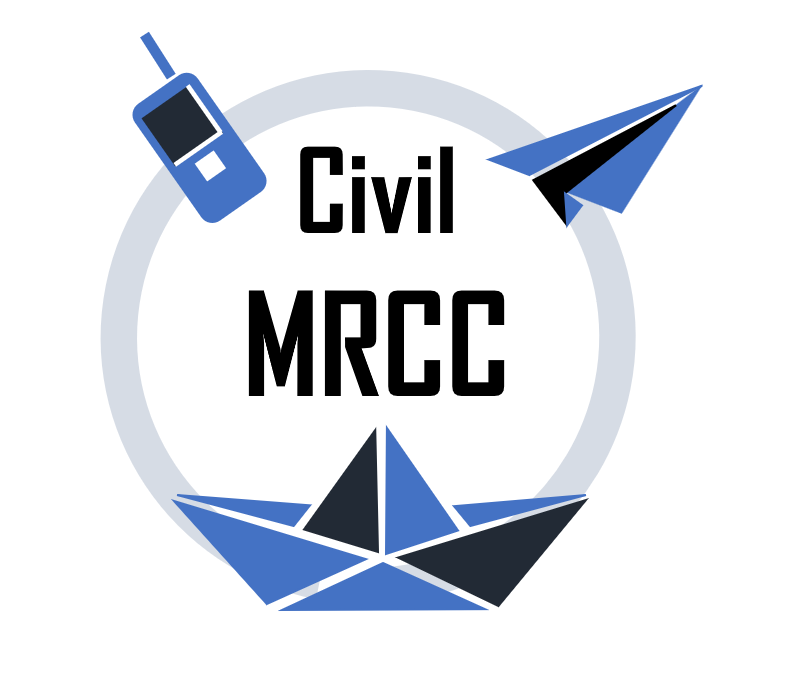For several months now, the subject of so-called “run-away-boats” has animated the world of sea rescue NGOs and beyond. These boats, which carry migrants trying to escape Libya, have characteristics that make them particularly controversial: often of relatively good quality (e.g. fiberglass-boats with several engines), they approach civil rescue ships then, once the rescue is over, the driver goes back to Libya. In recent months, there has been a growing number of cases of migrant boats approaching sea rescue NGOs in this way. SOS Mediterranée reported this new challenge on its website at the end of January 2024: “…after evacuating 33 people from an unseaworthy, overcrowded boat in distress, the last remaining person onboard the makeshift boat suddenly started the engine and left the scene…”.
New pretext for denunciation and criminalisation?
Having the survivors handed out and the boat then leaving might put those involved in solidarity at sea in an awkward position. Although there is obviously no coordination between these “run-away boats” and the rescue ships, the fear of being associated, in the imagination, with a network of smugglers affects crews. And rightly so: for several years, it has been the policy of European governments to criminalize the civilian fleet by accusing them of colluding with the scarecrow figure that is the smuggler?
Right wing newspapers in Italy have already started to publish about the new phenomenon, picking and warming up the old, false rumor of sea rescue as taxi service for smugglers.
The probable logic behind the “run-away-boats”
It is not so difficult to assume the background of this new method. People on the move, who try to escape and depart from Libya in hopes of reaching Italy or Malta are confronted with a highly armed EU-Libyan pull- and push-back regime: surveillance by Frontex drones and airplanes spot the boats, complicity with Libyan militias in communication and coordination, and, last but not least, more modern patrol boats delivered by Italian government and backed by EU. Since last year it has become even more difficult for boats to get through the interception-net of the so-called Libyan coastguards. The modern equipment enables them to intercept many boats even at night. Such well-equipped run-away-boats are a logical response of smugglers to counter an increasing interception-rate.
Very often during the last years we could follow a kind of race between NGO-ships and the so-called Libyan Coastguards to reach first the overloaded boats in distress, already drifting or still moving. If Libyan forces reached them first or if they arrived on scene, when the rescue operation by NGOs had already started, they would act with brutal violence against the people on the move and sometimes also with threats and shootings against the civil fleet. People on the boats are at risk to be rammed, to be beaten and mistreated and to be sent back into hellish camps and detention centers in Libya. It is then not a surprise that people on the move try to rely on quicker embarkations to avoid a refoulement to Libya.
No Frontex, no smugglers!
The civil fleet shares the common demand of safe passage. Sea crossings are not only dangerous because of weather and waves, but additionally through the operations by so-called Libyan coastguards. The militias – paid, equipped and kept informed by the EU and Frontex – are the true reason for the permanent human rights violations at sea. To repeat it: no Frontex, no smugglers. No violent EU border regime, no market for business.
For example, let’s remember the summer of migration in 2015 in the Balkan Route: the smuggling market collapsed as soon as people on the move could travel with buses and trains. Or refugees from Ukraine in 2022: no smuggling networks appeared as Ukrainian refugees were free to move and even free to choose where they wanted to live.
Safe passage is not a utopia, it is simply a political decision. We understand that tomorrow all the smuggling and even the death at sea could become history if the border and visa regime were to be abolished and all people given freedom of movement.

Picture: Alarm Phone
Quicker means safer passages
It is not the civil fleet’s intention to be involved in a race with militias to reach a boat in distress first. It is not the choice of people on the move – searching for protection and a safe place – to be pushed back by so-called Libyan coastguards and to be detained again in inhumane camps. Many people, who finally reached Europe, were sometimes three, five times (or more) the victims of the pull- and push-back regime at sea. How can we condemn new methods of smugglers to create quicker and thus safer passages for the people on the move against this background? We know that governments – and not only the Italian one – will try to exploit the consequences of an unbearable situation, which they deliberately have created as an element of their own deterrence policy.
An escalated push- and pull-back regime is and remains an ongoing illegal practice: it is an injustice against the right to escape and to move. Based on this assumption there is no reason to be defensive or to be afraid of another possible attempt of criminalization through the phenomenon of run-away-boats. We know from the last ten years of civil sea rescue, that governments anyway continuously try to invent and to test new options to block rescue ships.
Alarm Phone (Central Mediterranean group)



